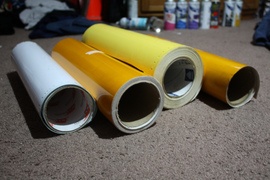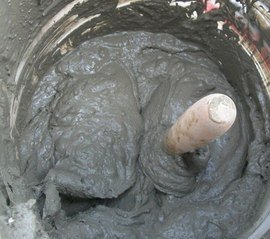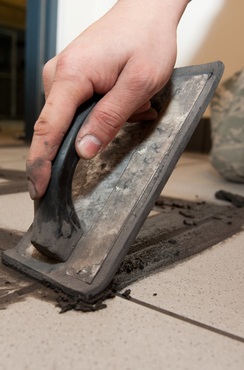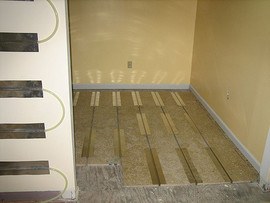How Much Does It Cost to Install Luxury Vinyl Plank Flooring?
Luxury vinyl plank (LVP) flooring gives you a beautiful, durable, and low-maintenance floor option for every room. LVP has the look, feel, and texture of real hardwood flooring. It is made of multiple vinyl layers, often with a urethane top coat for long-wearing durability. It comes in many colors, wood “species,” and thicknesses. It can be floated over any level substrate, making it a good choice for many rooms.
The national average cost range for installing LVP is $800 to $2,400, with most people paying around $1,600 for 200 sq.ft. of 20 mil LVP with a textured finish. This project’s low cost is $600 to install 200 sq.ft. of 12 mil LVP with a smooth matte finish. The high cost is $3,200 to install 200 sq.ft. of 40 mil LVP with an exotic wood pattern and high-gloss finish.
Cost of Luxury Vinyl Plank Flooring
| Luxury Vinyl Plank Flooring Installation Cost | |
|---|---|
| National average cost | $1,600 |
| Average range | $800-$2,400 |
| Low-end | $600 |
| High-end | $3,200 |
In this guide
Luxury Vinyl Plank Flooring Cost per Square Foot
Cost of Luxury Vinyl Plank Flooring by Brand
Luxury Vinyl Plank Flooring Prices by Core Material
Labor Cost to Install Luxury Vinyl Plank Flooring
Maintenance
Pros and Cons of LVP
Luxury Vinyl Plank vs Laminate
Luxury Vinyl Plank vs Tile
Enhancement and Improvement Costs
Additional Considerations
FAQs
Luxury Vinyl Plank Flooring Cost by Project Range
What is LVP Flooring?
Luxury plank vinyl 1 flooring is a rigid flooring plank with a solid vinyl core. It is made of several layers of vinyl, usually with a long-wearing urethane layer. It comes in many styles and mimics multiple wood species. It can be smooth or textured, matte or glossy, and thicker than other vinyl products.
Luxury vinyl planks are generally thicker and more durable than standard vinyl planks. While standard vinyl planks may be peel-and-stick or glue-down, LVP is usually a click-lock floating installation. It lasts longer and appears more like real wood. LVP comes in several thicknesses and qualities, including some that overlap with standard vinyl plank flooring in price. In general, LVP is usually considered a high-quality flooring product.
Luxury Vinyl Plank Flooring Cost per Square Foot
Luxury vinyl plank flooring has a range of costs depending on the thickness, brand, color, and finish. They range from $1.50 to $10 a square foot for the material, with installation costs ranging from $1.50 to $6 a square foot, depending on the material and substrate. Generally, thick and thin planks can be more difficult to install than mid-range planks, leading to a higher cost per square foot for labor. Thick planks are also more difficult to cut, while thinner planks may need a more level substrate. This translates into a total cost range of $3 to $16 a square foot, but most people pay between $5 and $12 a square foot for most projects.

| Size | Average Cost (Installed) |
|---|---|
| 100 sq.ft. | $300 - $1,600 |
| 200 sq.ft. | $600 - $3,200 |
| 300 sq.ft. | $900 - $4,800 |
| 500 sq.ft. | $1,500 - $8,000 |
| 1,000 sq.ft. | $3,000 - $16,000 |
Cost of Luxury Vinyl Plank Flooring by Brand
Many reputable companies manufacture LVP. Some specialize in certain styles or thicknesses, while others have a wide range of products. Costs vary by brand. Sometimes, a brand has a proprietary style or color, but with others, you can shop around for the best price. The following are some of the most popular brands for LVP and their average costs per square foot.

| Brand | Average Costs per Sq.Ft. (Material Only) |
|---|---|
| Mohawk | $2 - $4 |
| TrafficMaster | $2 - $4 |
| MSI | $2 - $5 |
| Lifeproof | $3 - $4 |
| Shaw | $3 - $6 |
Mohawk LVP Flooring
The cost of Mohawk LVP flooring is $2 to $4 a sq.ft. Mohawk has one of the largest selections of LVP. This includes a wide range of colors, textures, and “wood species.” They have a few types that are thicker than the others, but Mohawk tends to produce thinner flooring than some brands. This means they may not be as comfortable underfoot. Mohawk LVP is readily available with many retailers carrying a wide selection.
TrafficMaster LVP
The cost of TrafficMaster LVP averages $2 to $4 a sq.ft. TrafficMaster produces many flooring types, including a line of LVP. The material is carried through Home Depot. They do not have as large a selection of products as other brands. They have three distinct lines of LVP, including a line that has a ceramic coating for water resistance. They have several colors, including some designer shades. Their planks have a moderate thickness, making them easy to install.
MSI Luxury Vinyl Plank
The cost of MSI LVP ranges from $2 to $5 a sq.ft. MSI carries a wide range of LVP styles. These are considered good-quality products, with a long-wearing top layer. They have several lines, such as those with extra rigid cores for durability. They also have lines grouped by color, including some with more modern tones and those with more traditional shades. They also have one line with an even-longer-wearing top layer to get more years out of these planks.
Lifeproof LVP
The cost of Lifeproof LVP is $3 to $4 a sq.ft. Lifeproof is carried exclusively by Home Depot. They have many colors and shades, and all are stocked in most stores for easy access. Lifeproof is one of the only types of LVP with a low-VOC certification. This is important because vinyl emits VOCs - volatile gasses - that can make some individuals feel ill or develop headaches. Low-VOC products must be below a certain measure for certification, meaning this flooring type could be installed in the home of a sensitive individual without issue.
Shaw’s Luxury Vinyl Plank Flooring
The cost of Shaw LVP averages $3 to $6 a sq.ft. Shaw makes a wide range of durable luxury vinyl products. These include true LVP, WPC, and SPC lines. All have superior thickness and long-wearing top layers. Their floors are considered high-performance while also being easy to clean and maintain. Shaw makes several lines of LVP, including different cores and several colors and styles.
Luxury Vinyl Plank Flooring Prices by Core Material
LVP flooring traditionally has always had a thick and rigid vinyl core. This means the material is vinyl throughout. However, there are two subtypes of LVP with different core materials. The first is wood polymer core (WPC), and the second is stone polymer core (SPC). Both contain plastic at the core, but this plastic is blended with other materials, making the planks more flexible or durable and slightly more sustainable. The cost of the material varies depending on the material’s core because it affects performance. Generally, WPC may be slightly more flexible and easier to cut and install and softer and quieter underfoot, while SPC may be slightly more durable and longer-lasting.

| Core Material | Average Costs per Sq.Ft. (Materials Only) |
|---|---|
| LVP | $1.50 - $10 |
| SPC | $3.50 - $7 |
| WPC | $4 - $12 |
Labor Cost to Install Luxury Vinyl Plank Flooring
LVP costs between $1.50 and $6 a sq.ft. to install. The costs vary mostly from the material’s thickness. A very thin material can be easy to cut but may be more difficult to fit. This means it can take longer and have higher costs. Very thick materials click more easily but can be harder to cut. This may also raise the installation cost slightly.
Moderate-thickness material is usually the fastest and easiest to install and has the lowest installation costs.
Some brands may also be easier to install, with thicker cuts on the edges for easier locking. Others require more sorting to get the best color distribution across the floor. This means it can be difficult to get accurate installation costs until you have chosen your material.
Maintenance
LVP is a very low-maintenance flooring material. It is water-resistant and usually scratch-resistant. You should sweep or vacuum regularly to remove surface dirt. Wash regularly to remove dried-on stains. The material is non-porous, so it does not absorb moisture or deep stains. Small scratches may appear. These can be disguised with a color-match pen or marker by coloring over the scratches to blend back into the vinyl.

Pros and Cons of LVP
LVP has many positive attributes that can make it a good choice for many homes. It looks and feels like real wood. However, it is usually cheaper and lower in maintenance. It is also very easy to install, and many homeowners can install it themselves with few issues. Some types, such as WPC, are soft and springy underfoot, making them comfortable. LVP is also very durable and lasts for decades with little wear.
The biggest drawback to LVP usually involves sustainability. It contains some recycled material, but the material is difficult to recycle or dispose of. This means it is not considered an eco-friendly material.
The other drawback is that while this material looks and feels like wood, many people prefer the real thing. For this reason, it may not have as high a return on investment (ROI) as real wood floors.
Luxury Vinyl Plank vs Laminate
Many people looking for a synthetic floor material look at LVP and laminate flooring. The two materials can mimic wood, but they are very different materials.
Laminate is made of many layers of material, including paper, laminated with a top plastic layer. Because it contains wood pulp and paper, it is not water-resistant and can swell with humidity or moisture.
Vinyl is also made in layers, but it comprises polymers with a long-wearing urethane top layer. It is tougher and more durable than laminate and water-resistant. While laminate tends to scratch, dent, and warp, vinyl does none of these things. Laminate is marginally more sustainable than vinyl, with some brands making an eco-friendly laminate. Laminate is usually also more expensive to install because it needs an underlayment 2. Below are the average costs for installing both materials on a 200 sq.ft. floor.

| Type | Average Costs (Installed) |
|---|---|
| LVP | $800 - $2,400 |
| Laminate | $1,500 - $3,500 |
Luxury Vinyl Plank vs Tile
Another option is tile flooring. Many types of tile are on the market, including tile that mimics the look and feel of wood. Generally, tile is considered any material in any shape or size that must be installed in a mortar 3 with grout 4 between the joints 5. This can include ceramic, natural stone, and porcelain tile. Porcelain comes in planks that look and feel like real wood.
There is a much bigger cost range for installing a tile floor than an LVP floor. There is also a wider range of maintenance and durability. The closest competitor to LVP is porcelain wood-look tile planks. These are highly durable and low-maintenance but generally cost considerably more than LVP. While the material is low-maintenance, the grout can discolor or need replacement, making LVP the lower-maintenance choice. Below are the average costs for tiling a 200 sq.ft. floor versus the costs of a 200 sq.ft. LVP floor.

| Type | Average Costs (Installed) |
|---|---|
| LVP | $800 - $2,400 |
| Tile | $1,000 - $5,000 |
Enhancement and Improvement Costs
Smoother Transitions
When installing LVP in a room that abuts a room with another flooring material, you should use a transition strip. This creates a smoother transition between the two spaces. These materials come in several sizes and finishes, generally in 2’ to 4’ lengths. They cost $5 to $30 a piece.
Radiant Floor Heating
You can install LVP over radiant floor heating 6. Radiant floor heating warms the people and objects in the room directly, making the space more comfortable at a lower cost. The average cost to install radiant flooring is $10 to $25 a sq.ft.
Vinyl Vapor Barrier
When installing LVP in a basement or other damp area, consider using a vinyl vapor barrier 7. This keeps moisture from building beneath the planks, reducing mold and mildew growth. The average cost of adding a vapor barrier is $100 to $150 per room.
Additional Considerations and Costs
- Thickness. LVP comes in many thicknesses, measured in mils. They range from 10 to 40 mil, with most people opting for between 12 and 20 mil for their homes.
- Pets. LVP works very well with pets. It is moisture and stain-resistant and is not impacted by pet claws.
- Sustainability. LVP is not a very sustainable material. It is made of plastic, and while some may contain recycled material, the flooring cannot be recycled.
- Warranties. Most LVP have a warranty. Depending on the company, this may be a fade warranty or a limited lifetime general warranty. Always check with the manufacturer for more information on what may be covered.
- Underlayment. Generally, LVP should not be installed over an underlayment. The only exception is in damp areas where a vapor barrier may be necessary.
FAQs
- How much does it cost to install luxury vinyl plank?
The average cost to install LVP is $800 to $2,400 for a 200 sq.ft. installation. Many material types and thicknesses can impact the cost.
- Does luxury vinyl plank scratch easily?
LVP is scratch-resistant, meaning furniture, pets, and daily use should not scratch it.
- What is a good thickness for luxury vinyl plank?
The thinnest LVP is usually 10 to 12 mil, with most people choosing between 20 and 40 mil.
- What is the difference between vinyl plank flooring and luxury vinyl plank flooring?
In general, LVP is thicker, better-looking, and more durable. LVP more closely resembles real wood flooring and usually lasts longer.
Remodeling Terms Cheat Sheet
Definitions in laymen's terms, cost considerations, pictures and things you need to know.See full cheat sheet.
 1 Vinyl: A synthetic plastic made from ethylene and chlorine. Vinyl has many applications in the construction industry and it is widely used in sidings, window frames, roofing and gutters, among others
1 Vinyl: A synthetic plastic made from ethylene and chlorine. Vinyl has many applications in the construction industry and it is widely used in sidings, window frames, roofing and gutters, among others
 3 Mortar: A mixture of Portland cement or lime or a combination of both, sand, and water used to bind bricks, stones, and concrete masonry units together
3 Mortar: A mixture of Portland cement or lime or a combination of both, sand, and water used to bind bricks, stones, and concrete masonry units together
 4 Grout: A fluid form of cement used to seal the joints between tiles. It also makes the surface stronger because it bonds the tiles together
4 Grout: A fluid form of cement used to seal the joints between tiles. It also makes the surface stronger because it bonds the tiles together
 6 Radiant floor heating: (Also known as Radiant floor) A heating system using tubes or electric wires installed underneath the flooring
6 Radiant floor heating: (Also known as Radiant floor) A heating system using tubes or electric wires installed underneath the flooring
How much does it cost to install luxury vinyl plank flooring in my city?
Cost to install luxury vinyl plank flooring varies greatly by region (and even by zip code). To get free estimates from local contractors, please indicate yours.






